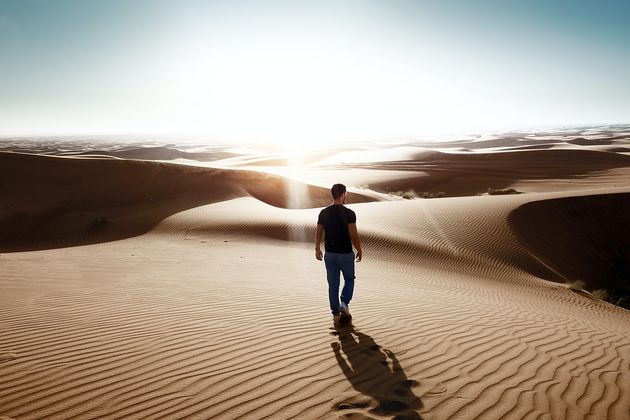The COVID-19 pandemic is spreading suffering around the world – but it can also teach precious lessons to individuals, churches, and nations.
 Photo: Moon. Unsplash (CC0).
Photo: Moon. Unsplash (CC0).
How would you describe our present global moment?
After 7 weeks in lockdown, a leader who also serves in Rome, Italy, described a sense of spiritual aridity and oppression that I had been feeling as well, but had not yet found words for.
Human society has been curtailed. There is widespread suffering. The UN warns of famines “of biblical proportions”.
A commentator called our present moment “a limbo”. I think it’s helpful to name it, instead, a desert, and to study anew what previous generations learned in barren times.
The desert is a powerful motif in biblical literature and spirituality. The people of Israel wandered in it; David hid in caves, Jesus fasted in the wilderness; Paul spent years in Arabia.
The desert can be a place of trial, heart-searching, and distress. It was where Moses fled after killing an Egyptian in a moment of rage, and where Jesus was tempted by power and splendor (Mat 4:8-9).
But the agony of these experiences can make the desert also a place of revelation and reinvention, where Israel received the law and leaders forged their characters.
The COVID-19 pandemic is spreading suffering around the world – but it can also teach precious lessons to individuals, churches, and nations.
Jesus answered Satan’s temptations by quoting from Deuteronomy (Mat 4:4, 7, 10). He had studied the lessons Moses conveyed at the end of Israel’s period in the desert.
Likewise, we will discover resources for our desolate moment by reexamining the Pentateuch, the literature that emerged from Israel’s desert. The psalms David wrote in hiding can give voice to our emotions and prayers.
From church history, Athanasius’s Life of Antony is an inspiring read. Benedicta Ward’s compilation of sayings from the Desert Father’s gives a sample of their hard-won wisdom.
A powerful contemporary resource is Matthew the Poor’s Orthodox Prayer Life. Protestants will not agree with everything written by this Coptic Orthodox monk, but few of us can match his devotion and spiritual authority.
The desert’s heat elevates mirages showcasing ambitions, temptations, and dead ends, like dark mirrors of our souls.
Coming after Jesus’ baptism, when his identity as God’s Son was affirmed, the desert helped Jesus discern what being God’s Son should not mean: displays of magic, spectacular gestures, or settling for a kingdom without a cross.
Similarly, when David fled from Saul’s persecution he could reflect on what kind of king he did not want to become, refusing to kill the man who wanted to kill him, while Paul shifted from a persecutor to an apostle for the Christian faith.
The current moment reveals our weaknesses, as individuals and nations. There is value in looking in the mirror and contemplating who we don’t want to become.
It find it remarkable that the Spirit led Jesus in the desert, and that he spent that period in intense prayer (Mat 4:1-2). For Jesus, the desert wasn’t an interruption but a springboard, where he strengthened the disciplines of solitude and prayer he would turn to throughout his life.
There is value in resting, playing, and pursuing hobbies while in lockdown. But there will be a stronger global church at the other end of his crisis if we dedicate substantial time to prayer.
Let us not waste our desert but be seek to be filled with the Spirit in this season.
If Jesus spent forty days and forty nights in the desert by himself, we can only know details of what he faced because he later narrated his experience to the disciples. Jesus did not hide his moments of temptation but chose to share his vulnerabilities with his followers.
Other people’s wounds have an impressive healing power. Often there is more value in hearing experiences of defeat than tales of success.
We too can be vulnerable, when, with whom, and to the extent that is appropriate. Some of the best gifts and words we can give others in this crisis will emerge from our painful experiences.
That might be the greatest legacy of Jesus’ desert. There he chose not to avoid a cross, like Satan tempted him to, and the wounds he eventually bore can heal us to this day.

Las opiniones vertidas por nuestros colaboradores se realizan a nivel personal, pudiendo coincidir o no con la postura de la dirección de Protestante Digital.
Si quieres comentar o